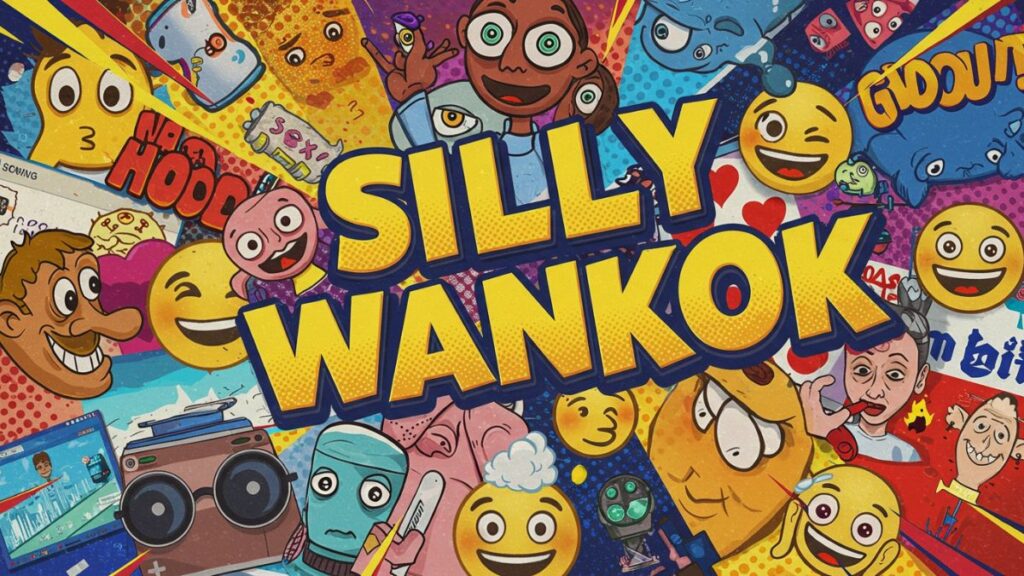The internet has always been a breeding ground for bizarre trends, unpredictable memes, and outlandish words that seemingly appear from nowhere. One of the latest phrases catching the attention of meme lovers and online explorers alike is silly wankok. While the term may sound absurd, it has slowly carved out its own place in the quirky corners of digital culture.
From meme pages to gaming servers, silly wankoks is being dropped into conversations, usernames, and joke threads — often leaving people amused, confused, or both. But what exactly is this term, and why has it become such an unexpected hit?
The Emergence of Silly Wankok
Unlike most slang that has roots in pop culture or youth lingo, silly wankok seems to be entirely original. It doesn’t come from a known language, television show, or historical meme. In fact, its mystery is part of its appeal.
It appears the phrase originated in obscure internet forums or meme generators, where randomness is not just encouraged but celebrated. The phrase “silly” adds a sense of playful foolishness, while “wankok” is strange enough to make people stop and take notice. It has that perfect balance of weird and funny — a combination the internet adores.
Why Silly Wankok Is So Catchy
The charm of silly wankok lies in its utter meaninglessness. People love phrases that sound like they should mean something but don’t. The brain naturally wants to assign meaning to words, and when that meaning doesn’t exist, it often leads to laughter or bewilderment — especially when the term is repeated in a humorous context.
Additionally, the phrase is easy to say and visually funny to read. Its randomness gives it the ability to fit into all sorts of digital conversations, from memes to jokes to reaction comments.
Common Uses of Silly Wankok in Online Culture
While there’s no strict definition, silly wankoks is being used in a variety of ways online:
-
As a nickname or alias: People are creating usernames like “SillyWankok27” or “TheRealSillyWankok.”
-
In memes: It often appears in image macros or absurd meme captions. For example, a picture of a cat knocking things off a table might be captioned, “This is peak silly wankok energy.”
-
Gaming culture: In multiplayer games, players are naming their avatars or squads after it, purely for laughs.
-
Chat lingo: Some people use it to describe moments of chaos or ridiculousness. “That group chat last night was full-on silly wankoks.”
The Psychology Behind Absurd Humor
The popularity of silly wankok isn’t just random—it reflects how our brains react to absurd humor. Nonsense phrases stimulate curiosity, and when they’re presented in funny or unexpected ways, they create an emotional response. Whether it’s confusion, amusement, or delight, the term is successful because it surprises us.
Humor rooted in nonsense has existed long before the internet. Think of Lewis Carroll’s Jabberwocky or Dr. Seuss’s made-up rhymes. Silly wankok follows this tradition — only now, it’s amplified by social media algorithms and meme culture.
Could Silly Wankok Become a Viral Phenomenon?
We’ve seen stranger things go viral online — from a dancing baby in the ’90s to today’s endless TikTok trends. Silly wankok has the potential to reach similar heights. All it takes is one viral video, one well-timed tweet, or a popular influencer giving it a shout-out.
Already, creators are using the phrase in ironic videos, TikTok skits, and even parody merchandise. There are mock ads for “Silly Wankoks Energy Drink” and fictional “Silly Wankoks Day” events. The possibilities are endless — and the more absurd, the better.
Silly Wankok and the Evolution of Meme Language
The language of the internet is constantly evolving. What used to be considered weird or niche now becomes mainstream in a matter of hours. Silly wankok fits neatly into this evolution.
It’s a perfect example of how a phrase doesn’t need to be clever, logical, or even real to gain popularity. As long as it’s entertaining, it has value in the attention economy.
In many ways, silly wankoks is a mirror of our current online environment — chaotic, humorous, and ever-changing. It shows how communities bond through inside jokes, and how something as simple as a made-up word can spread like wildfire.
Embracing the Silliness
The best part about silly wankok is that it doesn’t take itself seriously. That’s the entire point. It’s not meant to be profound or polished — it’s a celebration of randomness, a reminder not to take everything online too seriously.
In a digital world that’s often overwhelmed by arguments, politics, and heavy news, silly trends like this provide a refreshing dose of lighthearted fun. They give people something to laugh at together, even if no one can explain why.
Will Silly Wankok Stand the Test of Time?
That’s hard to say. Internet slang has a short shelf life unless it finds a deeper cultural connection. Some terms vanish after a week, while others become permanent fixtures in the meme lexicon.
Whether silly wankoks stays or fades, its existence highlights an important truth: sometimes, the internet just wants to laugh. And in those moments, nonsense like silly wankok gives us the perfect excuse.
Final Thoughts on Silly Wankok
Whether you stumbled upon the term by accident or heard it from a friend who loves weird memes, there’s no denying that silly wankok is delightfully absurd. It might not have a dictionary entry or an official backstory, but that doesn’t stop it from spreading joy and confusion in equal measure.
In the end, it’s just another example of how humor has evolved in the digital age. One moment we’re discussing serious global events, and the next, we’re laughing at something as bizarre as silly wankoks. And maybe that contrast — that sudden shift from serious to silly — is exactly what makes internet culture so captivating.


